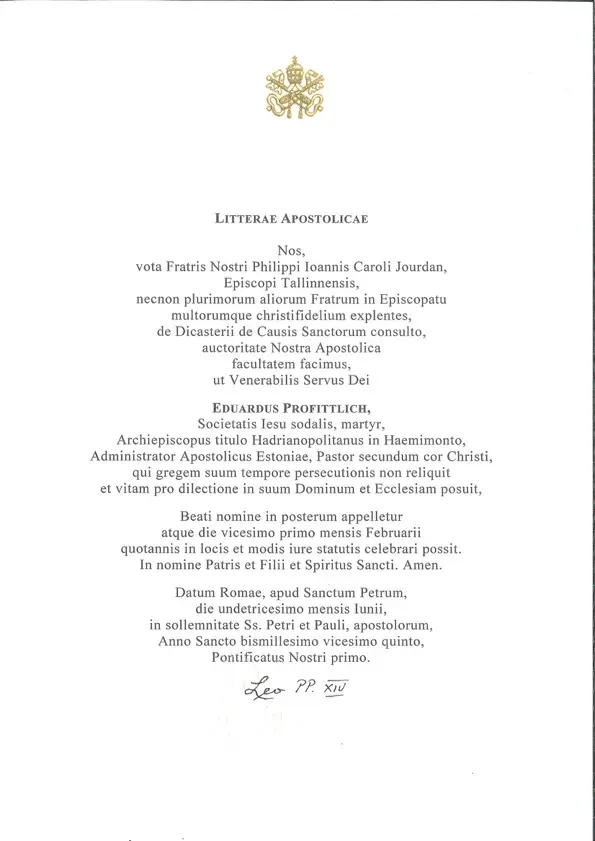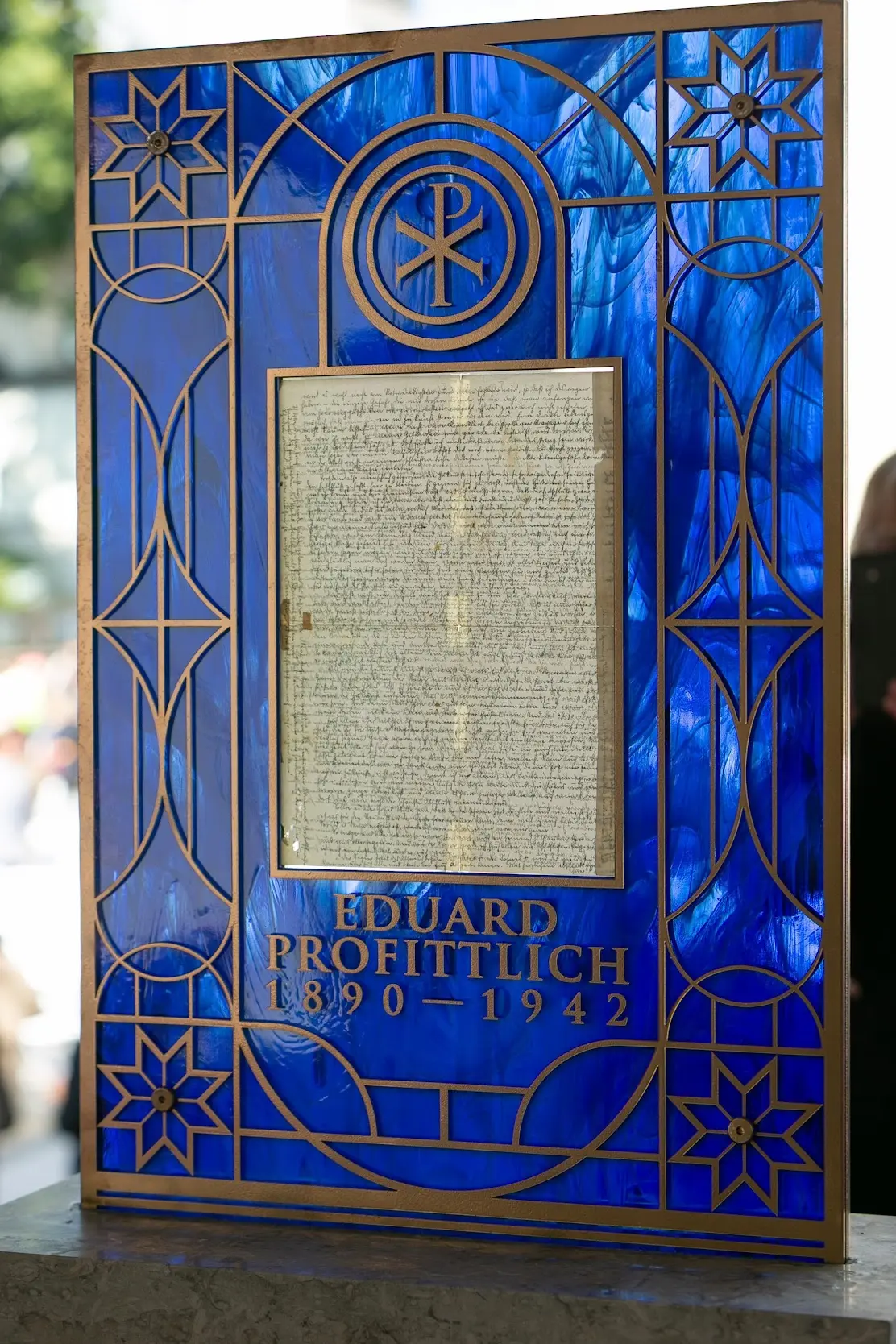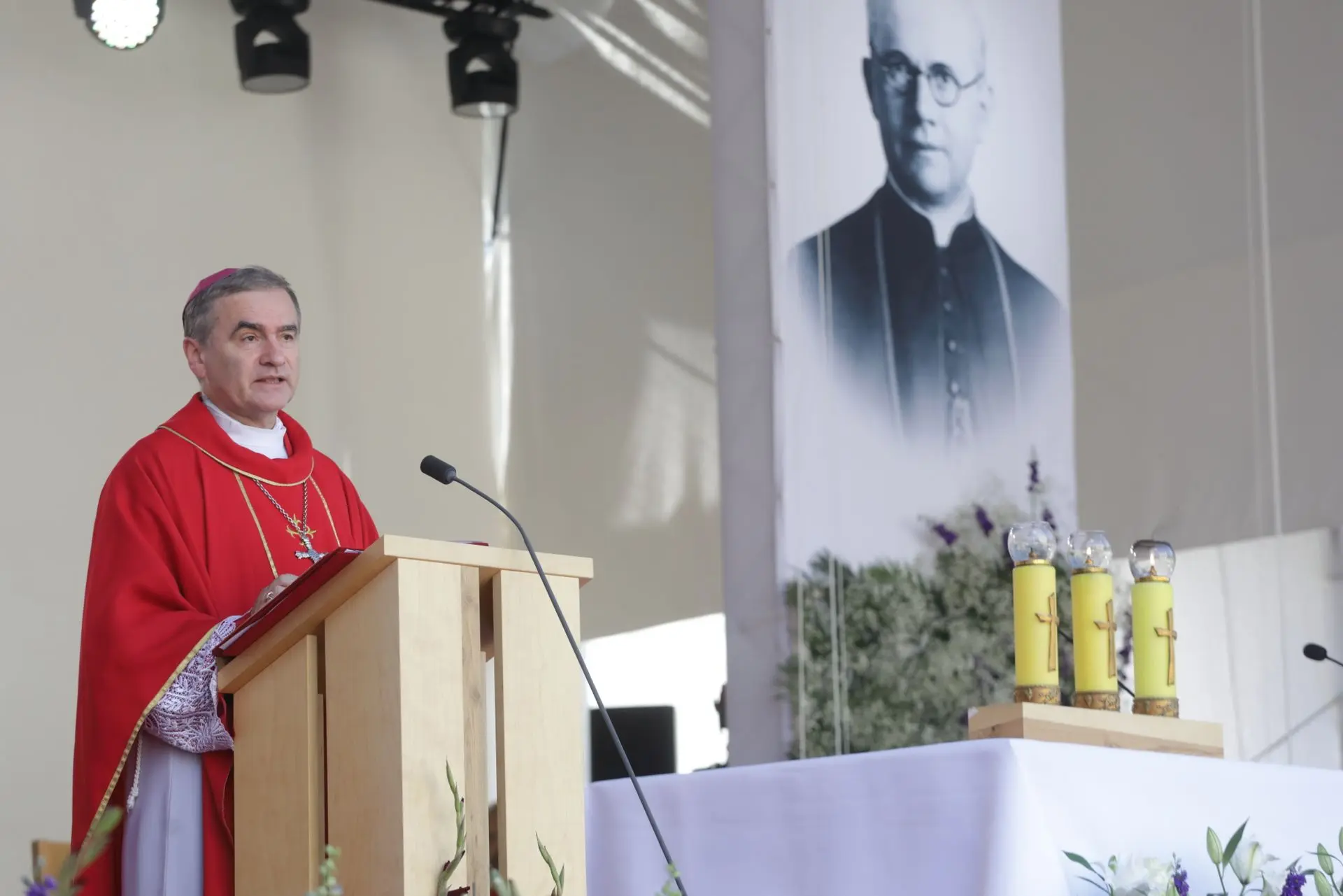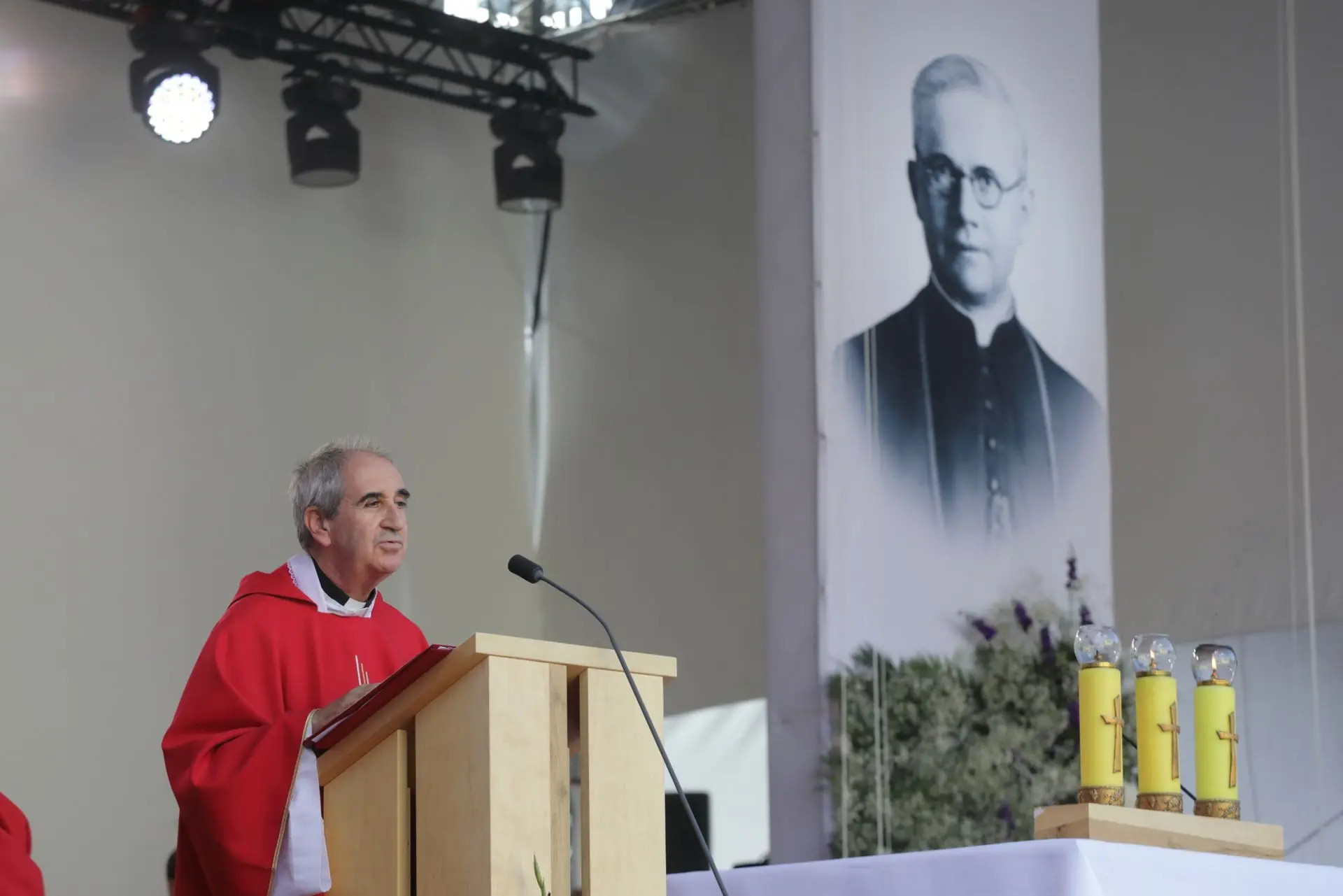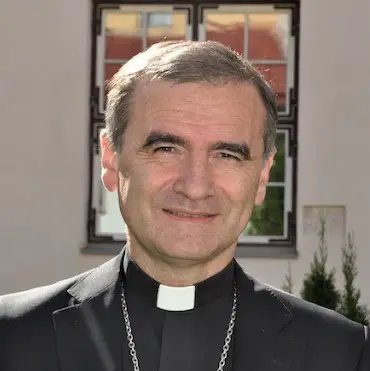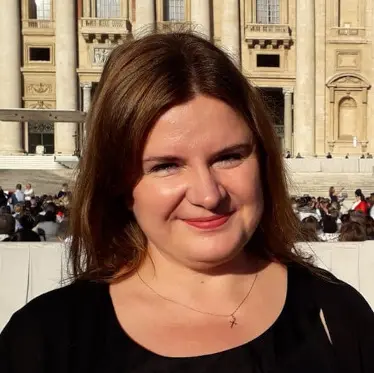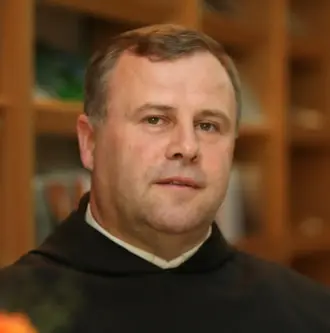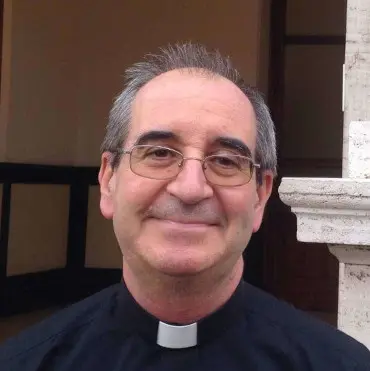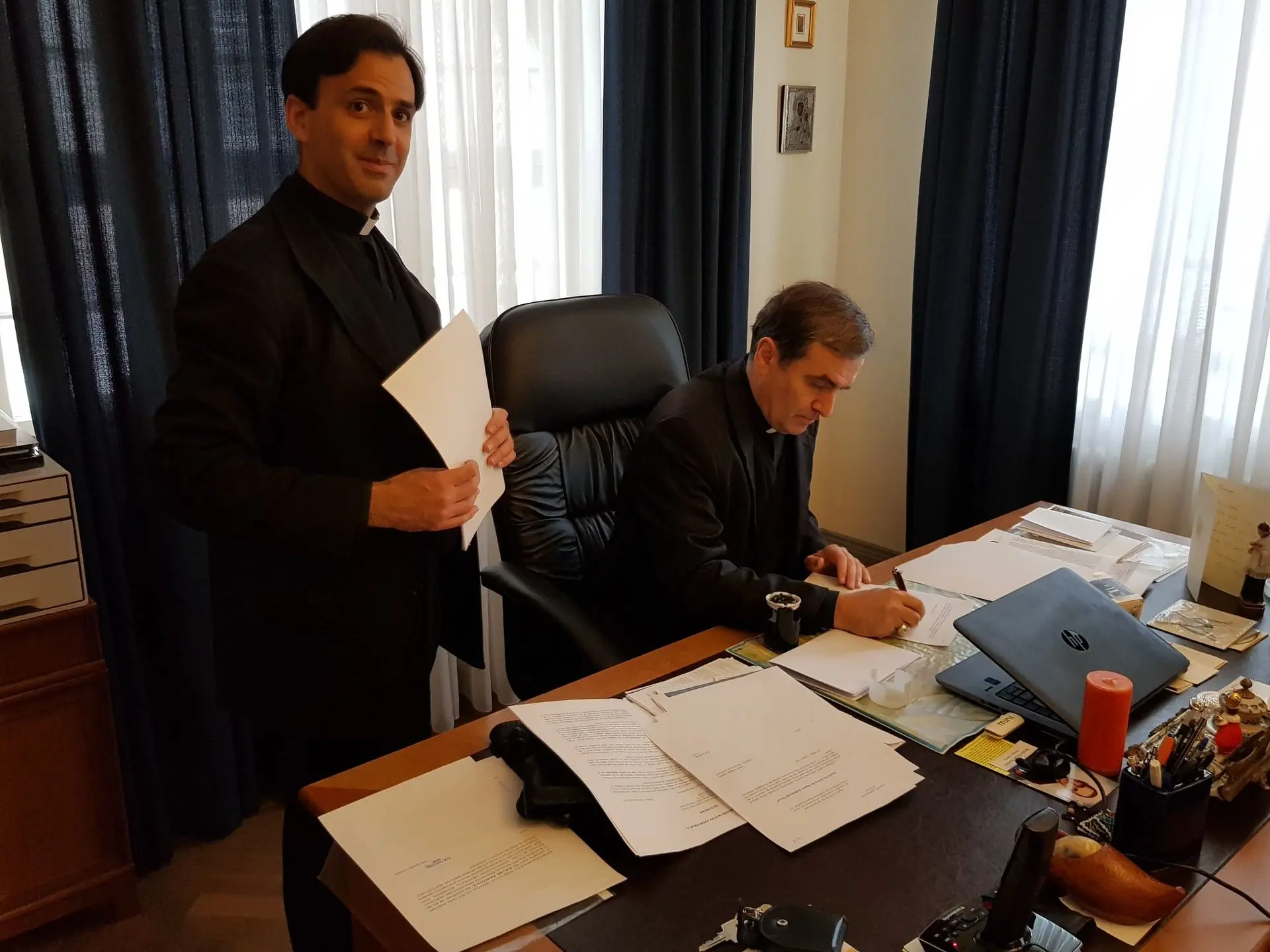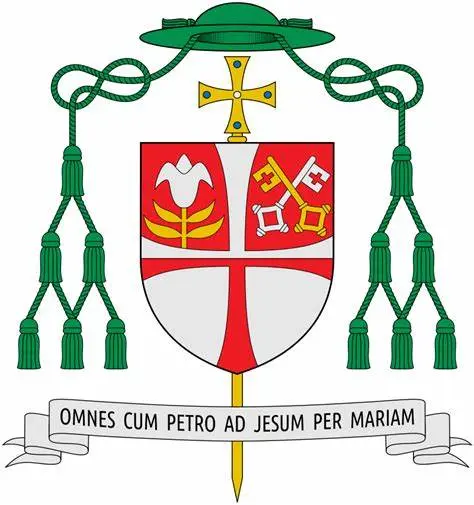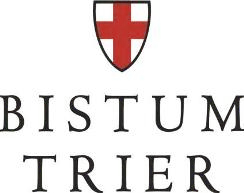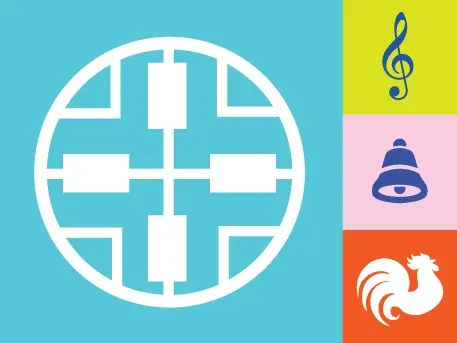Homily on the beatification of Archbishop Eduard Profittlich
Cardinal Christoph Schönborn OP
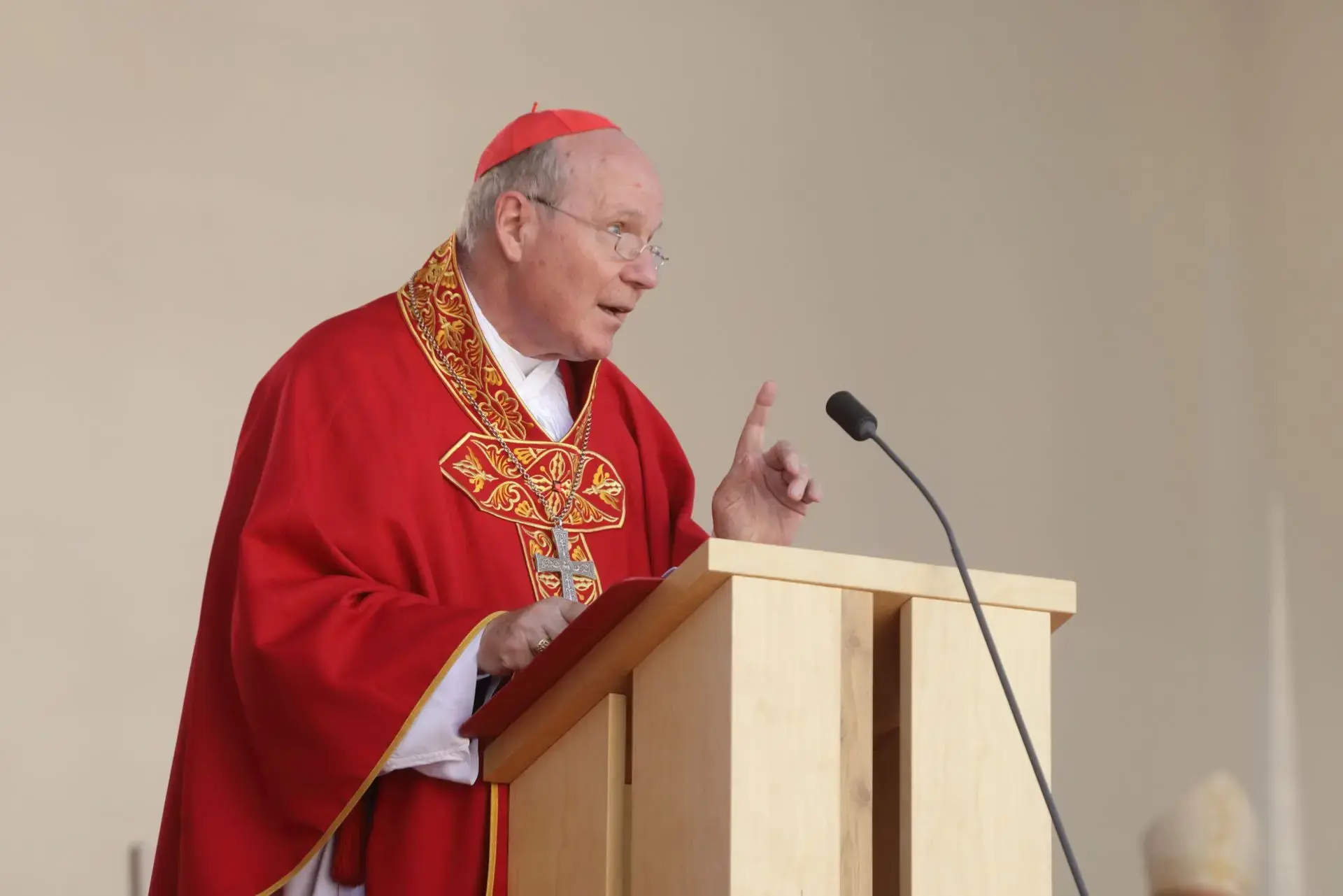
September 6, 2025
Wisdom 3:1–9; Rom 8:31b–39; John 17:11b–19
The day before yesterday, 4 September, names were read for almost twenty-four hours straight — simply names: the names of victims, more than 23,000 names, all of whom died in Soviet prison camps or in Siberia. Behind every name was a story, a face, a heart, a person. Before God no one was nameless or anonymous, no one merely a number, one among countless figures. I thank you, my confreres, for the Dominicans’ initiative! I thank everyone who took part in that reading. Above all, thanks be to God Himself, who has promised that all those names are written by His hand. In the first reading we heard: “But the souls of the righteous are in the hand of God, and no torment shall touch them.” One name among the 23,000 has been much spoken of recently: Archbishop Eduard Profittlich. Naturally no other victim is forgotten, even if some names were spoken only once during those long hours of reading every single name.
I recall one of Pope Benedict’s catecheses. It was the final catechesis in his series on the saints. It was devoted to the countless unknown saints whose names are written in the book of life, even if they are never entered individually in the Church’s calendar of saints. That catechesis is unforgettable to me. Today it moves me especially. Those unknown saints are the immediate and profound reason for Archbishop Profittlich’s beatification today. They — his faithful in the Diocese of Tallinn — are the reason he is raised today to the splendour of the altars. Because he would not abandon them, he did not return to Germany, fully aware that this would almost inevitably lead to his death.
In the early Church, for example in Paul’s letters, the faithful are called “saints.” For the sake of those saints, for his flock, for his sheep, Father Profittlich was prepared to give up his life. He could have advanced clever arguments to avoid it — for example, in order to survive and be of help later. The guidance he sought from Pope Pius XII did not come as a command but as counsel: he should decide “above all with regard to the welfare of the souls entrusted to his care.” After making his decision he wrote to his family that “it is fitting that the shepherd remain with his flock and share their joys and sorrows.” His sincerity is deeply moving: “I must say that, although the decision cost several weeks of preparation, I did not make it in fear or anxiety, but rather with great joy.” That joy shines through in the Apostle Paul’s words quoted in today’s homily from the Letter to the Romans: “Who shall separate us from the love of Christ?” With that joy of Christ Archbishop Profittlich was able to touch, console and sustain his faithful souls and, very likely, many others as well.
Beatification is never directed at a single person alone. “He who believes is never alone!” said Pope Benedict. Archbishop Eduard’s decision was sustained by the prayers of the faithful for their bishop. One day we will experience, see and understand how greatly the prayers and faithful lives of many people invisibly protected and guided our own paths. Today’s beatification embraces all those who shaped Father P. Eduard’s way — above all his parents (he was the eighth of ten children), his teachers, his friends (oh, how important they are!), and the ecclesial places and persons who formed him. Who can ever measure which people, circumstances and experiences have formed and tested us all? All of this together made it possible, in the decisive hour, to say so clear a “yes” to the potential martyrdom that Archbishop Profittlich gave. It was his very personal “yes” — and yet it is something more: it is the Church’s “yes” to God’s will expressed in an individual’s “yes.” Private holiness is always supported by the holiness of the Church, the Bride of Christ. For that reason today is a day of joy for the Church, especially for the Church in Estonia.
The 23,000 names of victims, among them our present witness of faith, remind us that every individual life was set in the context of an extraordinarily dramatic time. Today’s beatification cannot ignore what was happening then in Europe and in the world. It was an unleashing of unimaginable hell. Hitler in Germany, Stalin in the Soviet Union. The agreement between those two for the division of the spoil in what was indisputably the most insane war in history. As soon as the spoil was divided, one robber attacked the other to seize everything for himself: “Today Germany is ours and tomorrow the whole world.” Concentration camps and the Gulag were expressions of utter contempt for human dignity. What a contrast this formed with the dignity with which Archbishop Profittlich submitted to the NKVD officers. His faith gave him peace and steadfastness. One among millions of victims of two murderous ideologies, he died on 22 February 1942.
The 23,000 names of victims, among them our present witness of faith, remind us that every individual life was set in the context of an extraordinarily dramatic time. Today’s beatification cannot ignore what was happening then in Europe and in the world. It was an unleashing of unimaginable hell. Hitler in Germany, Stalin in the Soviet Union. The agreement between those two for the division of the spoil in what was indisputably the most insane war in history. As soon as the spoil was divided, one robber attacked the other to seize everything for himself: “Today Germany is ours and tomorrow the whole world.” Concentration camps and the Gulag were expressions of utter contempt for human dignity. What a contrast this formed with the dignity with which Archbishop Profittlich submitted to the NKVD officers. His faith gave him peace and steadfastness. One among millions of victims of two murderous ideologies, he died on 22 February 1942.
In this situation the witness of the blessed martyred bishop acquires a special significance. In his homeland Germany a vast systematic persecution of Jews was already taking place, which soon became bitter reality across the whole of Eastern Europe conquered by Germany. The notion that National Socialism or Soviet communism would spare Christians proved quickly to be an illusion. All of this could repeat itself in our time. Hence Archbishop Profittlich’s stance is so valuable for us today. It shows the Christian way in times of persecution. Two sentences of Eduard Profittlich moved me particularly. They are full of consolation and joy that can come only from God Himself. After his decision not to return to Germany he wrote: “I do this with the greatest willingness; indeed I may say, with great joy. Although I cannot in any way predict how my life will now run, what sacrifices still await me, I walk this road with great confidence in God, firmly convinced that if God walks with me I am never alone. And I have the firm hope that the sacrifice which I bring here for the interests of the kingdom of God in this country will not be in vain, in one way or another.”
Early Christians said: sanguis martyrium — semen christianorum! The blood of martyrs is the seed of Christianity. The hope which Father Profittlich fulfilled may fill us all at a time that has seen so many new martyrs. I will only briefly mention Pope John Paul II’s great project for the holy year 2000. He wanted to compile a collection of twentieth-century martyrs. A whole team of historians worked intensively on it. One of them told me that they abandoned the project after 20,000 short biographies. They were only at the beginning of the work — such is the number of twentieth-century martyrs. Only God knows all their names! Yes, we can hope that the countless martyrs of our time — the 23,000 victims of this country alone, as Bishop Eduard himself said — “will not be completely in vain.” We ask God for this today with the same confidence that filled him then.
In recent times much has been said about martyrdom. What already gripped Christians in the early Church was their joy. In today’s Gospel passage, in Jesus’ prayer at the Last Supper, Jesus asks His Father for this great gift: “Now I come to you, and I speak these things in the world that my joy may be in them and that my joy may be complete in them.” This prayer of Jesus was truly and fully fulfilled in the life of Father Eduard, Archbishop Profittlich: “When at last it became clear that I should remain, my joy was so great that I prayed the Te Deum in joy and thanksgiving. In general I felt the working of God’s grace in my soul so deeply that I have perhaps seldom felt so happy in my life as on the Thursday evening after the decision, and I have never celebrated Holy Mass so devoutly as on the Friday following the decision.”
We now celebrate the holy Mass in which, for the first time in the Eucharistic prayer, the name of Eduard Profittlich is mentioned. May he obtain for us from Christ, whom he faithfully followed, the joy of Christ, the abundance of His joy!
Amen.
